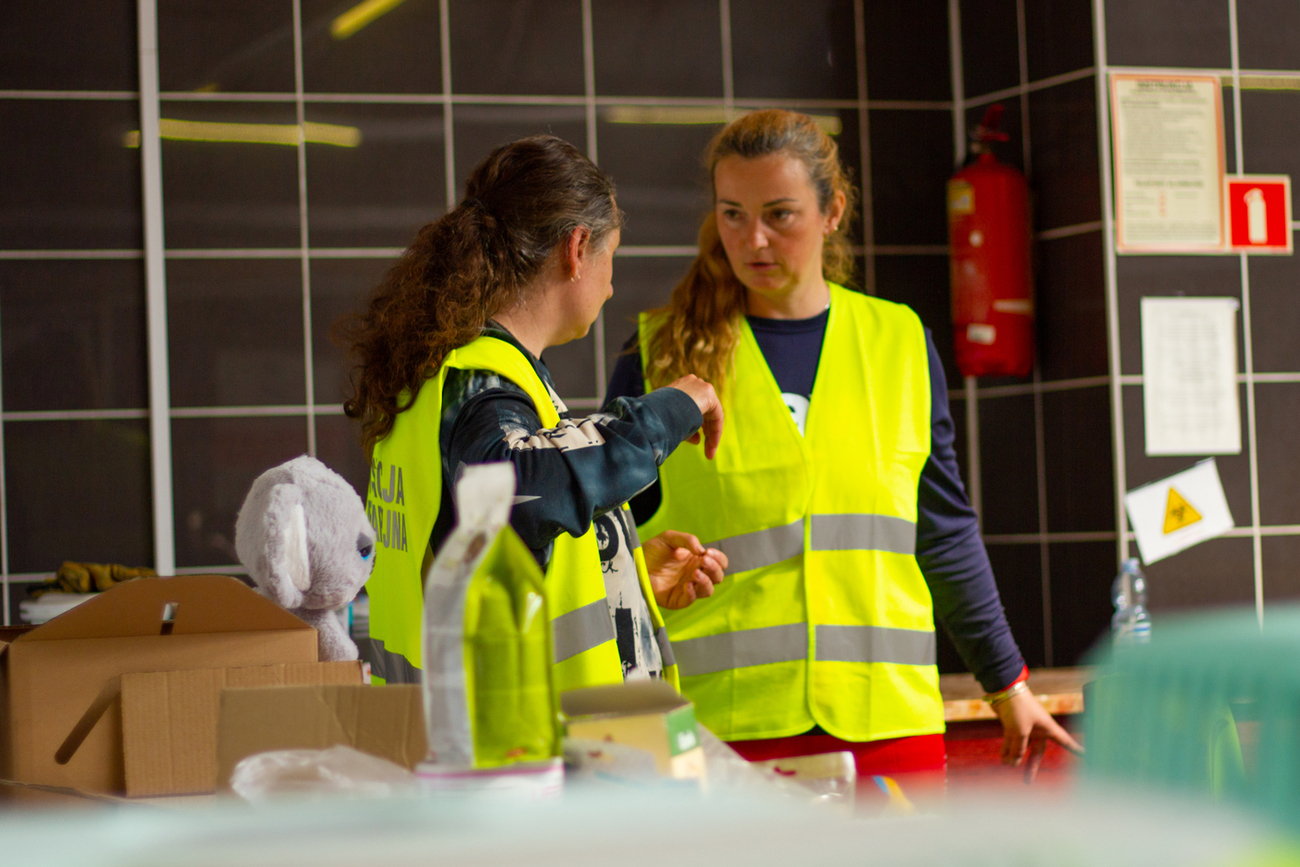Rescuing animals during disasters – Europe
save human lives by saving animals before, during and after disastersveterinary surgeon who treated pets of refugees during Ukraine war joins ifaw
veterinary surgeon who treated pets of refugees during Ukraine war joins ifaw

Veronika Herasymenko, a veterinary surgeon who treated thousands of pets of refugees from Ukraine arriving in Poland this year, is now joining IFAW as our new Rescue Operations Coordinator in Ukraine.
“I’m very thankful to IFAW,” says Veronika. “They made it possible for me to be there. They gave me the opportunity to help my own people in a time of great need, and I will be forever grateful.”
With experience in primary emergency and surgical care of domestic animals, from 2014 until the start of the war in Ukraine, Veronika co-owned and co-managed a veterinary clinic called Darsolina in Kharkiv. When the city of Kharkiv and her mother’s house were shelled, she was forced to move her family to Lviv, where they continue to reside.
“After I had fled Kharkiv, I saw the suffering and despair of the animals and my fellow Ukrainians, and I didn’t think twice—I had to do something, I had to help. That’s when I found IFAW. They were looking for veterinarians who could help with refugees and pets coming into Poland, so I didn’t hesitate and reached out to them.”
“When Veronika contacted us, we were immediately struck by her determination to help out wherever and however she could,” says Céline Sissler-Bienvenu, Senior Program Officer of IFAW’s Disaster Response team in Europe. “She told us that she wanted to help offer some comfort to the refugees and their pets, knowing that she could help bridge the language barrier and ease the suffering of the animals.”
After an introduction day at IFAW’s ‘blue tent’, Veronika joined the Polish veterinary team at Przemyśl train station. Supported by IFAW, Veronika and fellow Ukrainian veterinarian Olga Dugina stayed at the Polish border for four months to help give animals basic health checks and support the Polish veterinarians with vaccinating, chipping and arranging official documentation for the pets to enter Poland with their owners. Together, Veronika and Olga treated 3,355 animals over a period of three months, working 24-hour shifts.
In the first few weeks after the war began, several trains came in every 24 hours, each carrying hundreds of people and pets. “When a train arrived, it was all hands on deck,” says Veronika. “We would spend two to three hours processing all the animals non-stop, giving them vaccinations, chipping them and filling out paperwork. Most of the animals coming through were dogs and cats, and the one thing they all had in common is that they were very, very stressed.”
Veronika was able to bring some ease to the minds of pets and owners. “It was easy for me to have a quick chat with people when they came in to explain to them what we were doing and why, as many refugees were weary after the difficulties they faced while trying to flee their country as they passed numerous Russian checkpoints. It made treating their animals and making sure they got the care they needed that much easier.”
IFAW is equally grateful for Veronika’s incredible dedication and unwavering commitment. “She really impressed us with her stamina, solving any problem she came across and doing it all with a positive and optimistic mindset,” says Sissler-Bienvenu. “We are therefore very excited to welcome Veronika as a fulltime IFAW employee.”
Veronika will work as operations coordinator for IFAW’s rescue efforts in Ukraine. She will be in charge of implementing project activities aimed at mitigating the effects of the war on animals and developing better welfare measures during the recovery phase.
“I am so happy to be able to continue helping my country and the animals that so desperately need our help,” she says.
To learn more about how many animals we have been able to help to date, how we distribute funds raised, and our next steps, please read this FAQ about our work.
Related content
Every problem has a solution, every solution needs support.
The problems we face are urgent, complicated, and resistant to change. Real solutions demand creativity, hard work, and involvement from people like you.